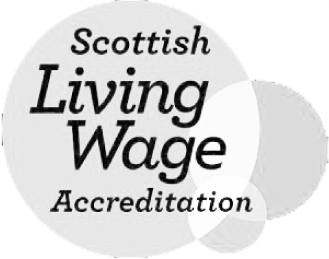Follow these top tips to reduce your fuel spend in no time.
Hot water
While we’re not billed directly for water use in Scotland, we pay to heat it. Around a fifth (21%) of the average household’s energy use is on heating water.
- Whether in the kitchen or bathroom, use water wisely. Filling up the kettle with only the water required (£6 a year); taking one cycle off of your weekly laundry routine (£8); and using a basin instead of a running tap to wash dishes (£25) all adds up to decent savings.
- A minute less in the shower every day could take £8 off your annual bill for every person in your household. You may be able to use a water efficient shower head too, which can help you use (and heat) less water. It seems like showers are getting a hard time here but still they do, generally, use much less water than baths.
- You can save on laundry day, too. Wash clothes at 30 degrees rather than 40 degrees, and only when you have a full load to get the most from each wash.
Heating
Heating your home efficiently is a big win as far as fuel saving goes, as more than half of a household’s spend goes towards providing heating and hot water.
- You could save around £75 through the effective use of heating controls, such as a programmer, room thermostat and thermostatic radiator valves (TRVs). And turning down the thermostat by just one degree can cut around £60 off your annual bill.
- Keep your boiler regularly serviced to make sure it’s as efficient as possible.
- Close your curtains and blinds at dusk to keep the heat in.
Ideally, you’ll only heat what you need and when you need it. If you’re struggling to do so, give a local energy advisor a call on freephone 0808 129 0888.
Draughts
Older homes may suffer from draughts: heating lost through gaps in windows, doors, floors or even the chimney.
- You’ll find plenty of low-cost draught-proofing options at your local DIY store, and having it done professionally will cost around £200. However, it can cut fuel bills by around £25 a year, as well as helping regulate temperatures in your home.
Lighting
- Whether it’s ceiling lights or lamps – switch them off when they’re not in use. This can be particularly helpful in winter when you’re likely to have more lights on, for longer, while spending more on fuel as it is, through heating. It’s easy to forget to switch lights off but it’s also easy to get in the habit, and it’ll save you around £15 on your bills, annually.
- Energy-efficient lighting sometimes gets a bad rap, accused of slow light up times and lack of sizes. However, LEDs lead the way in efficiency. They are available for nearly every light fitting and reach full brightness as soon as you flick the switch.
- From an upfront cost of £100 for an average household to change all bulbs to LEDs, they would save around £40 a year on bills. Given the average lifespan of an LED bulb is 50,000 hours, so you can save for years to come.
Appliances
- Many appliances prefer to stand by rather than switch off. Before you shut down for the night, make a habit of flicking those switches around the home to power down completely. It could save you around £35 a year.
- This includes power supplies to devices that are already charged. If your phone, tablet or laptop is fully charged, switch the charger off. This saves energy, money, and additional wear and tear to your device – the heat caused by unnecessary charging can gradually damage battery life.
- If you’re replacing appliances, buy the most energy-efficient option you can afford.
- Using a dishwasher? Use it only when full, using the eco function.











